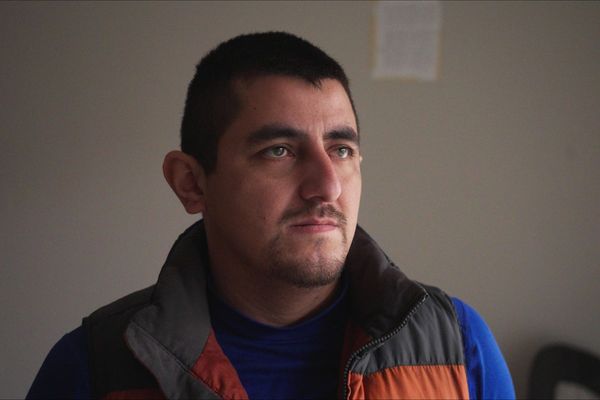WASHINGTON _ The Trump administration does not expect to make much noise following the results of Sunday's presidential election in Venezuela, which the U.S. considers a fraudulent election that leader Nicolas Maduro is expected to win despite widespread poverty and starvation in his country.
But senior administration officials told McClatchy that plans are being drawn for more sanctions in the coming weeks that could potentially target the Venezuelan oil or mining sectors.
Senior administration officials said they don't want to give Maduro any unneeded attention on what they see as a corrupt vote with a forgone conclusion that will surprise no one. Maduro has cracked down on dissenters and allowed his country to descend into an economic and humanitarian crisis, forcing hundreds of thousands to flee.
"This is to communicate to the world that really the 20th of May isn't an important day," said a senior administration official who spoke anonymously per administration policy. "The reason is that the outcome is already known. What's going to happen Sunday, everyone knows that. There is no sense of making too much of this date."
That could change, but administration officials said they expect to only provide a brief statement consistent with past comments about not recognizing an illegitimate election and call for a return to democracy in Venezuela.
The officials told McClatchy they're instead focused on organizing a series of strong options to present to President Donald Trump that could target the oil and/or mining sector.
"We'll continue the pressure that we're putting on the Maduro regime, systematically and surgically, in the coming weeks without necessarily having a big announcement," the senior administration official said.
The lack of action, however, marks a change from a year ago when Trump promised "strong and swift" actions against Maduro if he went ahead with the summer election for a new constituent assembly that could rewrite the constitution and strip democratically elected lawmakers of their power.
The administration the next day froze Maduro's assets, banned him from the United States and labeled him a "dictator."
And just a week ago, Cabinet members were exhorting Latin American nations to join them in isolating the regime.
Vice President Mike Pence called for the suspension of the elections, and Nikki Haley, U.S. ambassador to the United Nations, went even further and called for leadership change.
"For the safety and the security of all people in Latin America, it is time for Maduro to go," Haley said during the 48th Annual Washington Conference on the Americas at the State Department.
But the administration didn't let the week go without a bit of a bang. The Treasury Department on Friday announced sanctions against one of Venezuela's most powerful leaders, Diosdado Cabello, and members of his family.
Cabello, a former military chief who maintains strong influence over the Venezuelan military, is a longtime ally of the late President Hugo Chavez and a leader within the ruling Socialist party. He is often referred to as Maduro's second in command.
"The Venezuelan people suffer under corrupt politicians who tighten their grip on power while lining their own pockets," said Treasury Secretary Steve Mnuchin. "We are imposing costs on figures like Diosdado Cabello who exploit their official positions to engage in narcotics trafficking, money laundering, embezzlement of state funds, and other corrupt activities."
Mark Feierstein, the White House National Security Council's senior director for Western Hemisphere affairs under President Barack Obama, didn't see much reason for the administration to make a big announcement after the vote.
"The administration has made their statement on the elections," Feierstein said. "I don't think there is much of an argument that the election is anything but a sham. I think at this point they're internally focused on what steps to take unilaterally and collectively after the elections."
The White House has been turning up the pressure on Venezuela. Trump's aides have drawn up outlines of available economic and individual sanctions meant to strangle Venezuela's economy and force a change.
The United States has slapped financial sanctions on Maduro and more than 50 current and former senior Venezuelan officials, blocked U.S. companies from investing in Venezuelan companies and cut off the so-called "Petro," a form of Venezuelan cryptocurrency, from the United States' financial system
The international community has been generally supportive of Washington's efforts to force democratic change in Venezuela, but have been reluctant to take strong actions on their own.
"There are consequences for looking at the other way, with the excuse of stability, because in the end, it has always been a very negative result," said Luis Almagro, the secretary general of the Organization of the American States.
Venezuela remains a priority, administration officials emphasized. Just because it's not making a big announcement doesn't mean that Venezuela is not a focus for the administration.
"Venezuela remains a priority for this administration," said a senior administration official. "If we take a lower key tact moving forward it's not because we're not prioritizing it it's because we're looking at ways to undercut the legitimacy of the elections, which are illegitimate."







